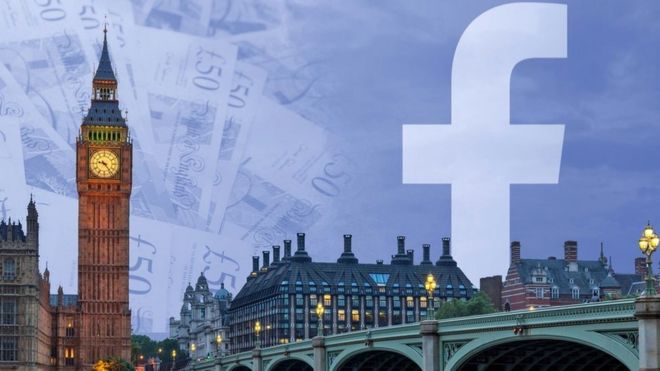
A cache of Facebook documents has been seized by MPs investigating the Cambridge Analytica data scandal.
Rarely-used Parliamentary powers were used to demand that the boss of a US software firm hand over the details.
The Observer, which first reported the story, said the documents included data about Facebook's privacy controls.
Damian Collins, MP, later told the BBC that he believed the documents were "highly relevant" to his inquiry. Facebook has demanded their return.
Escorted to Parliament
The documents were intercepted when an executive of US tech firm Six4Three was on a trip to London.
In a highly unusual move a House of Commons serjeant at arms was sent to the businessman's hotel and he was given a final warning and a two-hour deadline to comply with the order.
When the executive failed to do so he was escorted to Parliament and warned he risked fines and imprisonment if the documents were not surrendered, the paper said.
The firm is involved in court action against Facebook in the US, where the documents were obtained through legal procedures.
- Facebook v Soros: 'Congress must probe'
- Facebook appeals Cambridge Analytica fine
- Facebook treated voters with 'disrespect'
Damian Collins, chairman of the Commons Digital, Culture, Media and Sport (DCMS) Committee, said he believed the documents - which include emails - contain information about how Facebook and other parties handle user data.
He told the BBC: "We felt this [information] was highly relevant to the inquiry... and therefore we sent an order to Mr [Ted] Kramer through the serjeant at arms asking that these documents be supplied to us. Ultimately, that order was complied with."
Mr Collins said he had reviewed the documents, and his committee would discuss this week how it intends to proceed.
'Return the documents'
In the Observer, Mr Collins said the methods used to obtain the documents were unprecedented, adding: "But it's an unprecedented situation."
He criticised Facebook's lack of cooperation with his committee, and said the "documents contained answers to some of the questions we have been seeking about the use of data, especially by external developers".
Facebook had yet to respond to a BBC request for comment, but told the Observer: "The materials obtained by the DCMS committee are subject to a protective order of the San Mateo Superior Court restricting their disclosure.
"We have asked the DCMS committee to refrain from reviewing them and to return them to counsel or to Facebook. We have no further comment."
Facebook and its founder Mark Zuckerberg have faced intense of pressure over the social media giant's use of personal data, the spread of fake news, and, this month, that it hired a PR firm to make claims about the financier George Soros.
Last month the UK data watchdog fined Facebook £500,000 following its investigation into the Cambridge Analytica affair.
Facebook has appealed against the fine, claiming that the watchdog found no evidence that UK users' personal data had been shared inappropriately and the penalty was therefore unjustified.
The Cambridge Analytica scandal stems from the discovery that an academic at the University of Cambridge - Dr Aleksandr Kogan - used a personality quiz to harvest up to 87 million Facebook users' details.
Some of this was subsequently shared with the political consultancy Cambridge Analytica, which used it to target political advertising in the US.
It was initially reported that about 1.1 million UK-based users had had their details exposed.

Nenhum comentário:
Postar um comentário